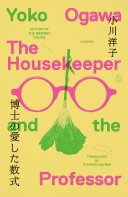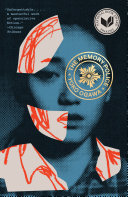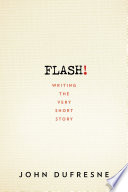If you’re searching for top authors like Yoko Ogawa, you’re setting a high literary bar for a good reason. Check our guide to find your next favorite author!
Yoko Ogawa is known for her ability to use small, relatable aspects of human psychology to drive critically acclaimed character development in books, including The Diving Pool,The Housekeeper and the Professor, and The Memory Police. Her reputation as a literary star in Japan was first cemented with Ogawa’s winning of the Akutagawa Prize for literature for her Pregnancy Diary, a novella she wrote in short spurts when her son was a toddler. Our guide includes fiction and nonfiction authors, as Ogawa is known for excellence in both genres.
For more recommendations, you might also enjoy exploring best adventure books, best David Sedaris books, or authors like Bill Bryson.
Table of Contents
Open Table of Contents
Must-Read Authors Like Yoko Ogawa
1. Gaston Bachelard, 1884 - 1962

Gaston Bachelard via Wikipedia Public Domain
French philosopher and author Gaston Bachelard is well-known for his work The Poetics of Space and his strong influence on future philosophers, including Michel Foucault, Dominique Lecourt, and Jacques Derrida. Bachelard believed certain thinking patterns could halt scientific progress and created epistemology to help clear these patterns so that development could progress. He often discussed the impossibility of scientific errors and said that supposed errors could be attributed to illusion. In addition to his contributions to science and philosophy, Bachelard also contributed to poetry, dream analysis, and psychoanalysis.
“We are never real historians, but always near poets, and our emotion is perhaps nothing but an expression of a poetry that was lost.”
Gaston Bachelard, The Poetics of Space
2. Nicocolo Ammaniti, 1966 -
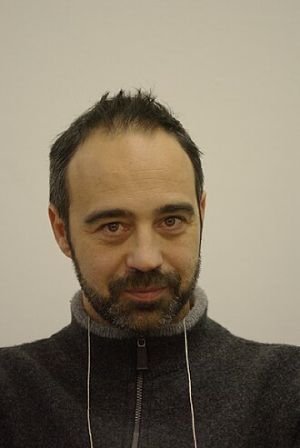
Niccolò Ammaniti via Wikipedia Public Domain
Italian writer Niccolo Ammaniti is known for several novels, including Branchie, Steal You Away, Let the Games Begin, Me and You, and Anna. The director and author is known for his ability to write satirically, bringing humor to tragedy. His 2003 novel, I’m Not Scared, sends readers on a trip to rural Italy, where they enjoy a story that’s a cross between a parable and a suspense thriller. Fans of Ammaniti’s work love how he leaves his endings to the reader’s imagination without revealing exactly how the characters’ storylines unfold.
“Stop all this talk about monsters, Michele. Monsters don’t exist. It’s men you should be afraid of, not monsters.”
Niccolò Ammaniti, I’m Not Scared
3. Laurent Gaude, 1972 -
Laurent Gaude, the author of Chien 51, is known for creating other-worldly works that transport readers to a new reality. Chien follows the story of Zem Sparak, a Greek student and freedom fighter struggling to make his way through a Hunger-Games-esque world where he’s assigned to work as a police officer. Gaude is also known for his work as a playwright. He especially gained notoriety acknowledgment for his epic monologue Onysos le Furieux, written in ten days.
“The two centuries before us were nothing but striving, fever, onslaught, and revolution. The centuries before us were ogres, devouring courage and genius, whole lives at a time. And here we are, With these words handed down to us: “Nation,” “Equality,” “Freedom,” And we contemplate them wearily. For we have long become citizens of boredom.”
Laurent Gaudé, Our Europe: Banquet of Nations
4. Yasunari Kawabata, 1899 - 1972
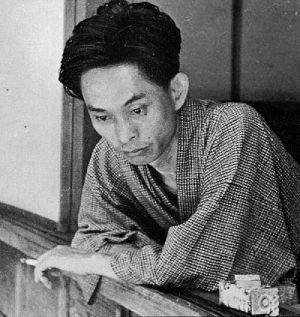
Yasunari Kawabata via Wikipedia Public Domain
Best known for his 1949 work Snow Country, Nobel-prize-winning author Yasunari Kawabata is celebrated for his sparse prose that forces readers to delve between the lines. As the first Japanese author to win the Nobel Prize for Literature, Kawabata quickly gained worldwide fame in 1968. During his acceptance speech for the Nobel Prize, he spoke at length about meditation and stated that spending long periods contemplating life can help one see the world’s beauty. He mentioned suicide during his speech and alluded to the idea that most great thinkers have at least considered the idea.
Those close to Kawabata noted that he might have been referencing the recent suicide of his friend, Yukio Mishima. Just four years later, Kawabata died by suicide, possibly due to grief for his friend and the knowledge that he had recently been diagnosed with Parkinson’s disease.
“Time passed. But time flows in many streams. Like a river, an inner stream of time will flow rapidly at some places and sluggishly at others, or perhaps even stand hopelessly stagnant. Cosmic time is the same for everyone, but human time differs with each person. Time flows in the same way for all human beings; every human being flows through time in a different way.”
Yasunari Kawabata, Beauty and Sadness
5. James Hilton, 1900 - 1954
Lost Horizon author James Hilton was known for his novels and screenplays. The British writer got his start with his 1920 novel Catherine Herself, which he wrote while finishing his undergraduate degree at Christ’s College. It took him over a decade to publish his second novel, And Now Goodbye. Many literary critics state that Hilton’s novels emulate English virtues while also refusing to ignore society’s darker side, including classism and narrow-mindedness. Lost Horizon was awarded the Hawthornden Prize in 1934 and is known as one of the first books to be printed in paperback.
“People make mistakes in life through believing too much, but they have a damned dull time if they believe too little.”
James Hilton, Lost Horizon
6. Hiromi Kawakami, 1958 -
Strange Weather in Tokyo won Hiromi Kawakami the Tanizaki Prize in 2001. The story details the unlikely friendship and eventual love story between a thirtysomething single woman and her former teacher, forty years her senior. Kawakami got a reasonably late start as a writer, first trying her hand at the craft with a collection of short stories in 1994 when she was 36 years old. She quickly became a well-known name in Japanese literary circles and went on to develop an emotionally ambiguous style that details social interactions.
“I had a habit of acting as though I were having a conversation with someone beside me – who was not really right there beside me – as if to validate these random effervescences.”
Hiromi Kawakami, Strange Weather in Tokyo
7. Lafcadio Hearn, 1850 - 1904
The Complete Works of Lafcadio Hearn detail the writing of the Greek-Japanese writer and translator. Credited with introducing Japanese culture to the Western world, Hearn spent time living in the United States in Ohio and Louisiana, where he worked as a journalist. The author also lived in Greece, Ireland, and the French West Indies. Much of his work explained the intricacies of Japanese culture in a way that felt familiar to people in the Western world, likely due to the writer’s work as an American journalist.
“Times are not good here. The city is crumbling into ashes. It has been buried under taxes and frauds and maladministrations so that it has become a study for archaeologists…but it is better to live here in sackcloth and ashes than to own the whole state of Ohio.”
Lafcadio Hearn, Inventing New Orleans: Writings of Lafcadio Hearn
8. Yukio Mishima, 1925 - 1970

Yukio Mishima via Wikipedia Public Domain
Yukio Mishima, the author of Spring Snow, founder of a Japanese militia, and renowned playwright - is considered one of the most influential Asian authors of the 20th century. Mishima wanted to become a writer but was encouraged by his father to enroll in the Faculty of Law instead. After completing his studies at the University of Tokyo, he began working for the Japanese government. Following his first full year of employment, Mishima felt exhausted and decided to transition to writing full-time.
His first short story, A Story at the Cape, was published in 1945 with critical acclaim. Sadly, like many Japanese authors, Mishima died by suicide in 1970. You might like these authors like Yalom.
“Young people get the foolish idea that what is new for them must be new for everybody else too. No matter how unconventional they get, they’re just repeating what others before them have done.”
Yukio Mishima, After the Banquet
9. Yukiko Motoya, 1979 -
The Lonesome Bodybuilder author Yukiko Motoya is a Japanese playwright and novelist. Growing up, she was inspired to write by Agatha Christie and Arthur Conan Doyle. She became a voice actor after high school but decided to focus on writing after receiving praise for a short play that she wrote. The Lonesome Bodybuilder is a collection of the author’s stories, and critics say that the author captivates her audience by pushing the absurd to new heights.
In addition to writing novels and short stories, Motoya is celebrated for her plays and is the youngest winner of the Tsuruya Nanboku Memorial Award in 2006 for Best Play for her play Distress. If you enjoyed our guide to the best authors like Yoko Ogawa, we have many more inspirational round-ups that you can check out such as the best authors like Mary Kay Andrews.
“Never mind. It’s too painful remembering the way I used to be. Back then I never bothered with boring explanations. My mind was open to anything. I wasn’t worried about being disrespected by my team, or of people thinking I was a crazy woman. I didn’t let myself be bound by anything as common as common sense.”
Yukiko Motoya, The Lonesome Bodybuilder
10. Virginie Despentes, 1969 -
Virginie Despentes, the author of Vernon Subutex 1, is known for her unabashed exploration of gender, poverty, and other issues often swept under the rug in modern society. She works as both an author and a filmmaker, and her characters typically deal with injustice that manifests in a way that makes it difficult for them to succeed. Vernon Subutex 1 made the Man Booker International Prize shortlist in 2018. The story follows a music shop owner whose life suddenly declines as he becomes stuck in a world of drugs and alcohol and stays in line with Despentes’ ability to create empathy for even the most tragic characters.
“Have babies, it’s wonderful, you’ll feel more fulfilled and feminine than ever,” but do it in a society in freefall in which waged work is a condition of social survival but guaranteed to no one, and especially not to women. Give birth in cities where accommodation is precarious, schools have surrendered the fight and children are subject to the most vicious mental assault through advertising, TV, internet, fizzy drink manufacturers and so on. Without children you will never be fulfilled as a woman, but bringing up kids in decent conditions is almost impossible.”
Virginie Despentes, King Kong théorie



